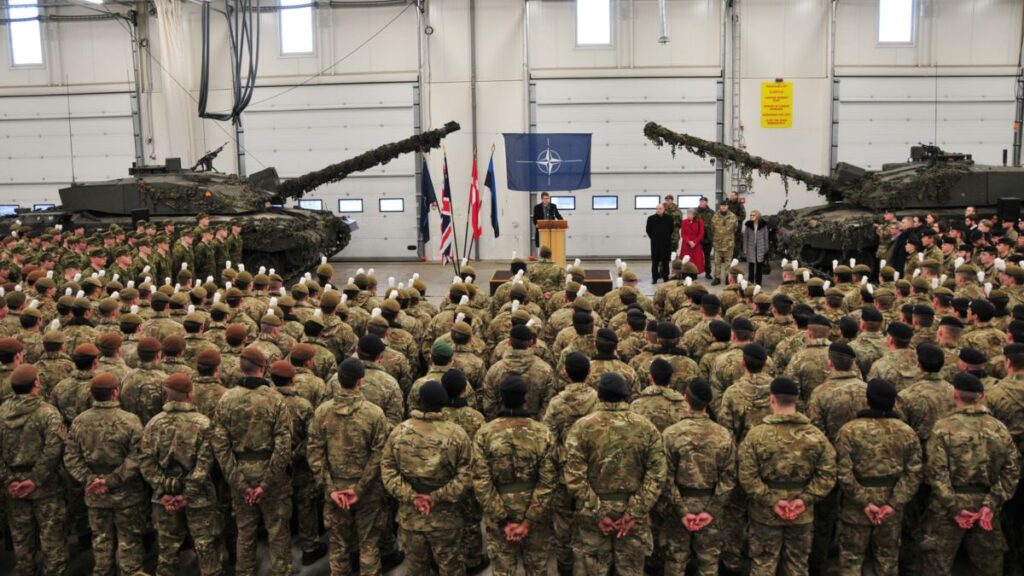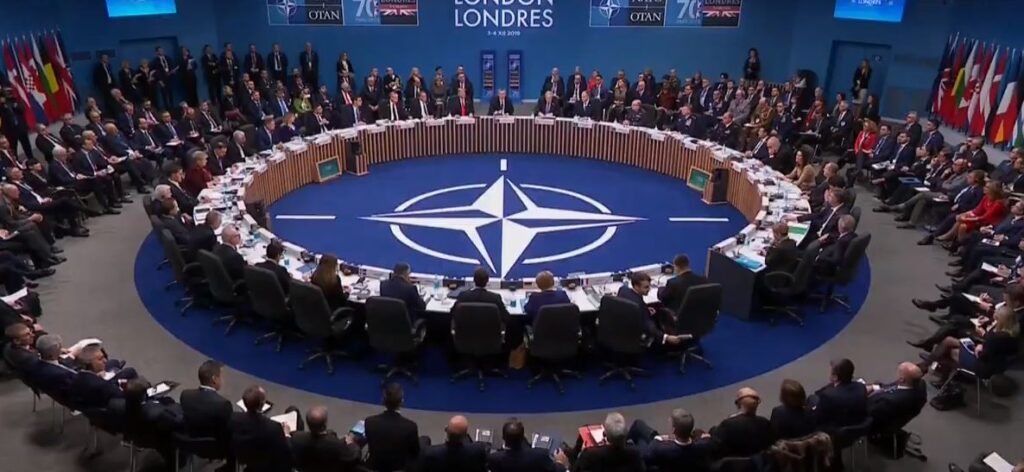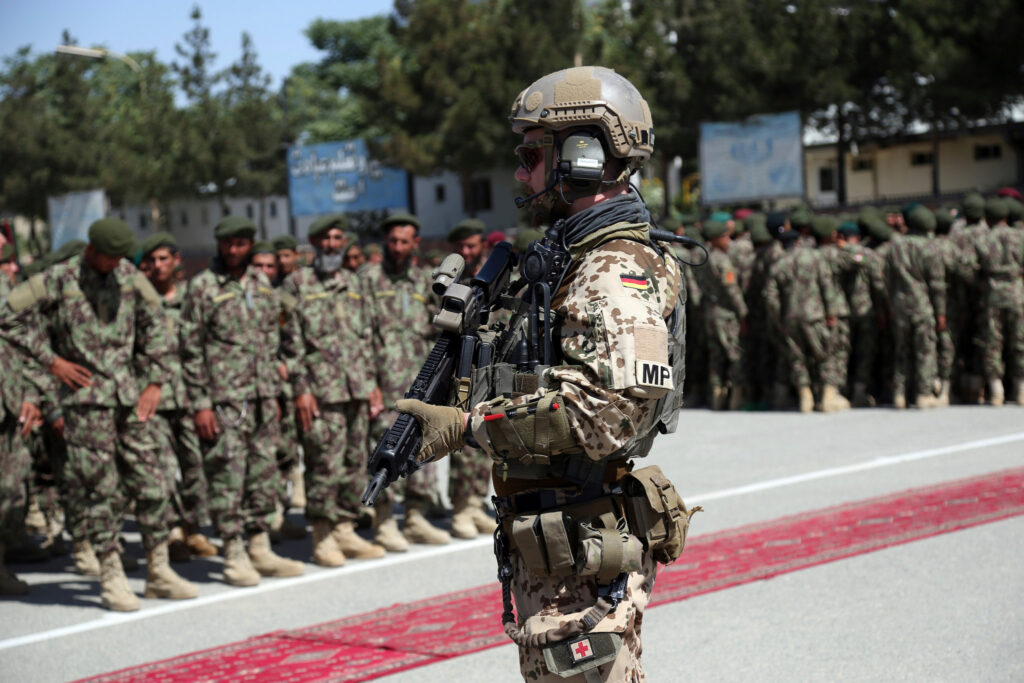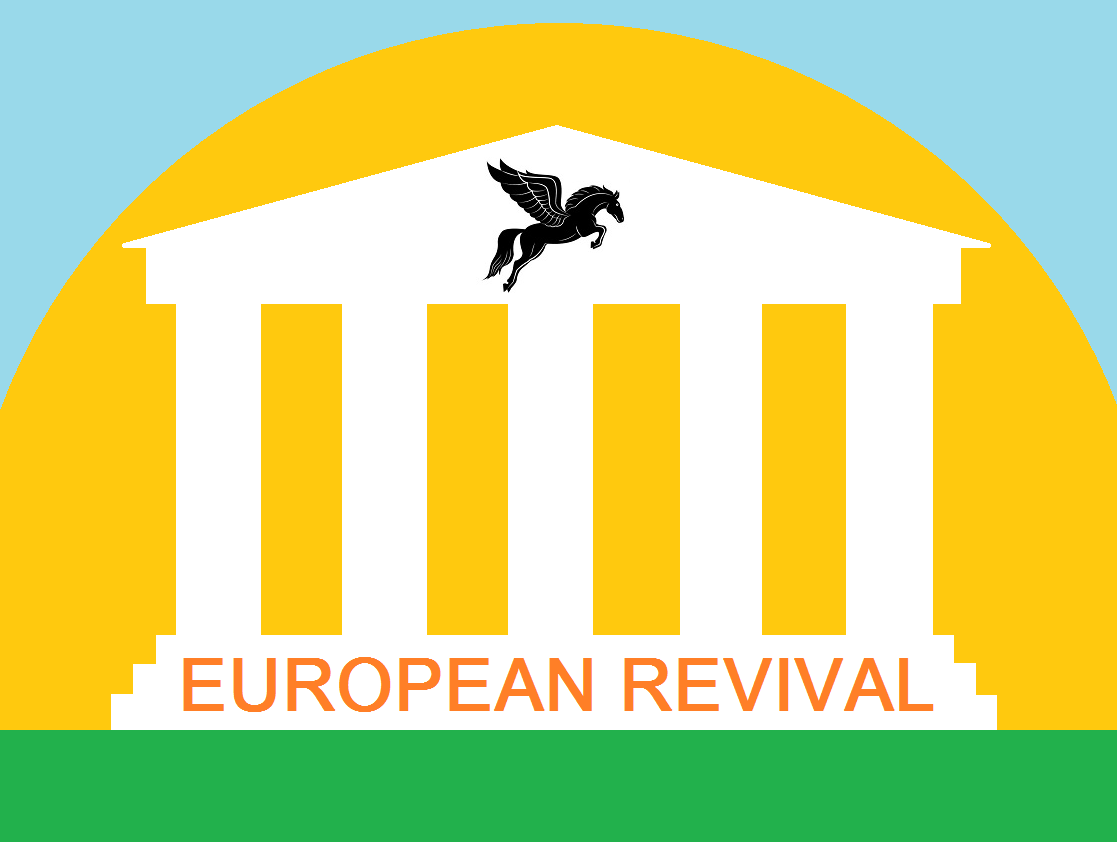A NATO without identity and values

In theory (very much in theory, little in practice) NATO is not only a military alliance but also an international organization of countries that share intentions and values:
“The Parties to this Treaty reaffirm their faith in the purposes and principles of the Charter of the United Nations and their desire to live in peace with all peoples and all governments. They are determined to safeguard the freedom, common heritage and civilization of their peoples, founded on the principles of democracy, individual liberty and the rule of law. They seek to promote stability and well-being in the North Atlantic area”. Preamble to the North Atlantic Treaty, 1949.
Over the years, especially in the most critical phases of the Cold War, the undisputed leader of the alliance – the USA – has often openly contradicted those values by unleashing wars, creating puppet states and loyal dictatorships. Especially in South America, less so in Europe, but perhaps only because they didn’t need it. Even at the same time as those actions, a large part of American and European public opinion condemned that modus operandi and those events. These are well known facts, from the dictatorship of Chile to the Greek one.

If a person of culture or even simply a citizen of genuine liberal principles today had the opportunity to debate hard with the men who organized the US strategy of that period (military and CIA leaders, presidents, secretaries of state, etc. ) and to bring them before the Court of History, we know what their answer would be:
“Beautiful people, it’s easy to talk and philosophize, fighting is much more difficult and requires continuous compromises. The USA and NATO had the responsibility and obligation to defend the Western world during the Cold War and to counter the big Soviet enemy in all possible ways. To prevent the Soviet Union’s sphere of action and influence from expanding to certain areas of the planet, it was necessary at certain times and in certain places to contradict – or suspend – democratic and liberal values, but that was done tactically to ensure the final victory to those democratic and liberal values. Now that the era of long-haired students’ protests accompanied by rock and roll is over, and we can think with more maturity and depth; now that the era of ideologies is over and one can look at history and politics with more objectivity and serenity; now that communism has prooved it can create less wealth within states than capitalism (which obviously has its flaws); now that the Soviet Union has collapsed (with its bloc in Eastern Europe) and all its faults have been verified with irrefutable historical evidence… In short, considered all these things and that on the other side there was something worse, we can say that it was good that the victory of the cold war went to the USA, the West and NATO. Even though during the war we had to get our hands dirty as it always happens in war, today’s freedom is the proof that certain exceptions taken in the past were only a means and not a goal. And then, historically and ethically, the balance of that conduct can generally be judged positively. We therefore ask for a full absolution!”

We do not know if the judge of that court – nor are we able to know who he/it may be – would acquit those defendants, but we certainly admit that their reasons are not lacking in logic and would be taken into consideration. Faced with the “big enemy”, the small enemies of the West – or at least those considered as such, like the fascist colonels on duty (Pinochet for example) or the Islamist fanatics (Afghan mujaideen) – were co-opted in the struggle to have a better chance of winning it. When an enemy is very strong, you focus on him and forget all the others. If and when the war is won, you can afford to deal with the others you have collaborated with for tactical reasons. It is not high strategy, it is common sense. We repeat, this way of acting is not enough to wash away all guilt and to absolve everyone, but it is still something that has its validity.
Now that the “big enemy” is not there, how could the USA and NATO do things similar to those done in the past without completely losing their identity and face? How could they create puppet dictatorships in South America, for example, without this clearly appearing as a mere imperialist and anti-democratic action? If it were done, not only long-haired nostalgics for the seventies but every authentically democratic citizen would organize sit-ins in front of the barracks. Similarly, how can NATO today maintain its identity and face by keeping within an authoritarian state with increasingly Islamist impulses like Turkey? A state that in the very twentieth century committed a series of genocides without ever wanting to assume its responsibilities (indeed, whoever dares to mention them ends up in jail)? A state where even today the rights of the only remaining minority – the Kurds – are still not respected -, a people so far not exterminated like the others just because they are Muslim? An aggressive state that systematically uses threat and blackmail in its international relations? A state that uses jihadist mercenary troops outside all laws and morals as pawns in all war scenarios (Syria, Caucasus, Libya)? A state that in recent times has flirted in an ambiguous and scandalous way with the ISIS? In short, we believe that today keeping within such a state, which denies all theoretical values of the West from A to Z, is for NATO something equivalent to organizing a puppet dictatorship in the style of the Cold War. And in an equivalent way, it takes away all identity and all credibility from it.
A justification that we have heard several times, and that frankly we find very weak, is that it is better to have a state like this inside (albeit in a problematic way) rather than outside, in order to be able to better control it, “not to let it have completely free hands”. This explains the attitude of “never-ending dialogue” that the European Union has adopted with it (which remembers so much – and ominously – the never-ending dialogue that Chamberlain and Daladier had with Hitler in the 1930s); this would also explain its membership in NATO. If it is better to keep inside states like this, which are the embodiment of what is being fought, at that point why not also propose North Korea, Sudan or Venezuela to join NATO? So as “not to leave their hands completely free”… It would be absurd just as the current membership of Turkey is. NATO can do what it wants of course, even decide to deny itself and its raison d’etre, but history and common sense teach that coalitions without identities and values - just like pacts between thieves and brigands – never bring anything good and above all they are never kept.
